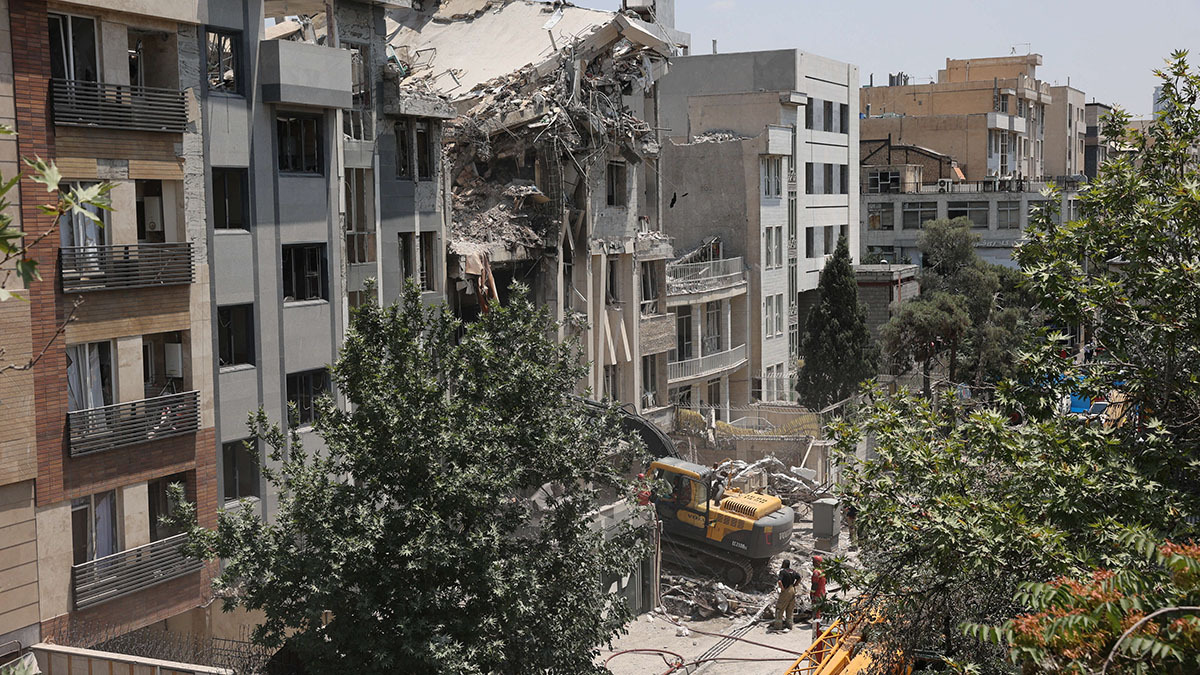Iraq will not allow its airspace to be used as a platform for attacks against the Islamic Republic of Iran.
Thus, Iraq’s National Security Adviser, Qasim al-Araji, pledged to take all necessary measures to prevent further violations of Iraqi airspace by Israel, which previously served as a platform for attacks against Iran during the 12-day war. This commitment once again aligns Baghdad with Tehran and puts it in indirect confrontation with the United States and its allies.
Analysts say the statement reflects the delicate regional and international balance facing Iraq as it attempts to preserve its strategic alliance with Washington while moving closer to Tehran. However, they point out that Iraq lacks the advanced air defence systems necessary to effectively counter Israeli incursions, making Al-Araji’s promise primarily symbolic, a political message underscoring Baghdad’s refusal to allow its territory to be used against its ally Iran.
Baghdad has long expressed its inclination towards the Iranian axis, a trend reinforced by the growing influence of Iranian-backed militias in Iraq.
These groups wield significant power in domestic and foreign policy, meaning that the promise goes beyond a question of sovereignty: it is also a political statement that strengthens Iraq’s ties to the regional axis of resistance and places it on a potential collision course with the Western bloc led by Washington.
Although Iraq has maintained military and security ties with the United States since 2003, recent developments highlight Washington’s waning influence in Baghdad. Growing pressure from armed factions, coupled with Iran’s increasing role, has made it increasingly difficult for Iraq to strike a true balance between its two rival partners.
Al-Araji’s comments also come amid deepening security cooperation between Baghdad and Tehran. Last August, the two sides signed a memorandum of understanding focused on improving border coordination and preventing cross-border threats. Their commitment is widely seen as part of the practical implementation of the memorandum, particularly the clause prohibiting the use of Iraqi territory or airspace to undermine Iranian security.
The agreement caused unease in Washington, where it is seen as a further strengthening of Iranian influence in Iraqi security institutions and a blow to the fragile balance of Baghdad’s foreign relations.
For Israel, the Iraqi promise represents an indirect warning: Baghdad insists that it will no longer allow its skies to serve as a base for attacks on Iran. In practice, however, the lack of modern air defences in Iraq means that full compliance with this commitment remains unattainable. Israel’s cutting-edge air and missile technology makes interception by Iraq’s current systems virtually impossible.
These developments come amid growing tensions between Israel and Iran, with both sides exchanging attacks that frequently spill over into the airspace of neighbouring states. As a result, Iraq finds itself caught in the middle of a conflict in which it is reluctant to become directly involved.
Araji made his remarks during a meeting in Baghdad with Majid Mirahmadi, head of intelligence for the Iranian Armed Forces, and his delegation, according to a statement from the Iraqi National Security Advisory Office.
The statement said that both sides discussed regional security challenges, issues of mutual interest and joint measures to preserve stability on the basis of good neighbourliness, within the framework of the bilateral security agreement. They also addressed the broader measures needed to ensure regional stability.
Araji was quoted as saying that ‘Iraq’s position is clear and unwavering in rejecting the use of its territory as a launching pad for aggression against neighbouring states, including the Islamic Republic of Iran’.
He confirmed that Iraq had lodged a formal complaint with the UN Security Council over Israel’s use of its airspace to attack Iran, and reaffirmed that the government, under the leadership of Prime Minister and Commander-in-Chief Mohamed Shiaa al-Sudani, ‘will take all necessary measures to prevent such aggression from recurring.’
